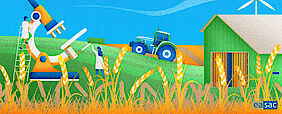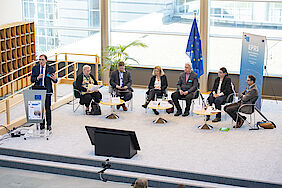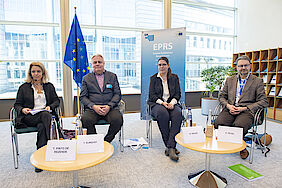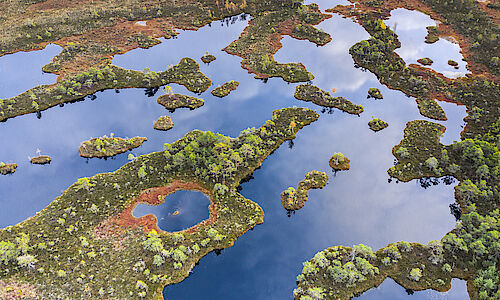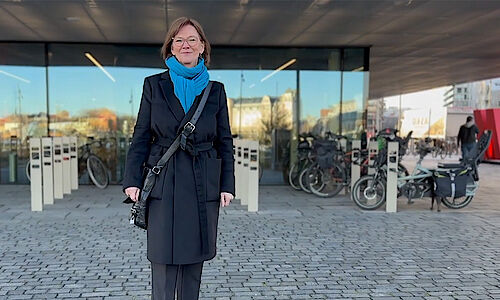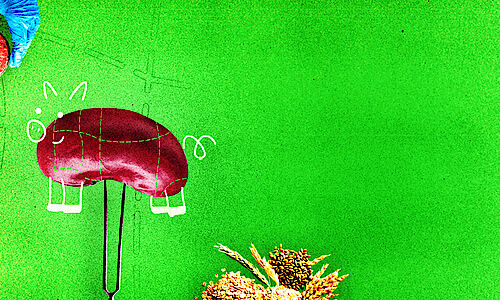News & Academies' activities
Regenerative Agriculture: a Win-Win-Win Strategy
Full house at EASAC’s event with the European Parliamentary Research Service on 8 February. Over 130 people heard firsthand about the EASAC Report on Regenerative Agriculture (published last year) from two of the co-authors, Professor Thomas Elmqvist and Dr. Orsolya Valkó, Chair of the Working Group.
“We are not a lobby organization”, underlined EASAC President Wim van Saarloos in his opening statement. „Our mission is to bring the best of independent science to policymakers.”
Prof. Thomas Elmqvist underlined „We live in a state of polycrisis - which is also a window of opportunity for transformation. This is the time we must start new thinking.” He described regenerative agriculture as a highly productive system, benefitting food security, the environment and economy: a win-win-win strategy. *It aims at maintaining productivity while increasing biodiversity, with a particular emphasis on soil biodiversity, and enhancing ecosystem services including carbon capture and storage in soil.”
Regarding European policies, Orsolya Valkó focused on the landscape perspective and the importance of extending site specific measures. “There is a lot of momentum for global restoration ambitions right now, so we hope there will be a lot of development in this field in the future.” She encouraged policymakers to develop indicators that are measurable over large spatial scales such as field size or the extents of high-diversity landscape features. „Result-based indicators work better than activity-based indicators to achieve biodiversity goals,” she explained.
The presentations were followed by a roundtable discussion with Members of the European Parliament and representatives of the European Commission on the tools to meet the main goals and targets of both the Farm to Fork and Biodiversity Strategies. MEPs, European Commission and Joint Research Center representatives congratulated EASAC on the report.
MEP Martin Hlaváček: “You are helping us. Even if we are doing comparatively well in reducing CO2 in agriculture in Europe today, we need to do even more.”
MEP Sirpa Pietikäinen: "Unless we change agriculture, our soil will at one point just be dust - and no fertilizer will help.”
Luca Montanarella of the Commission's Joint Research Center: “This solid, independent scientific assessment was really needed. It can help us in the discussion on soil health.”
Emmanuel Petel of the European Commission’s Directorate for Agriculture and Rural Development: “The report shows that there does not need to be an opposition between food security, productivity and other goals such as biodiversity and mitigating the climate crisis.”
back to overview
